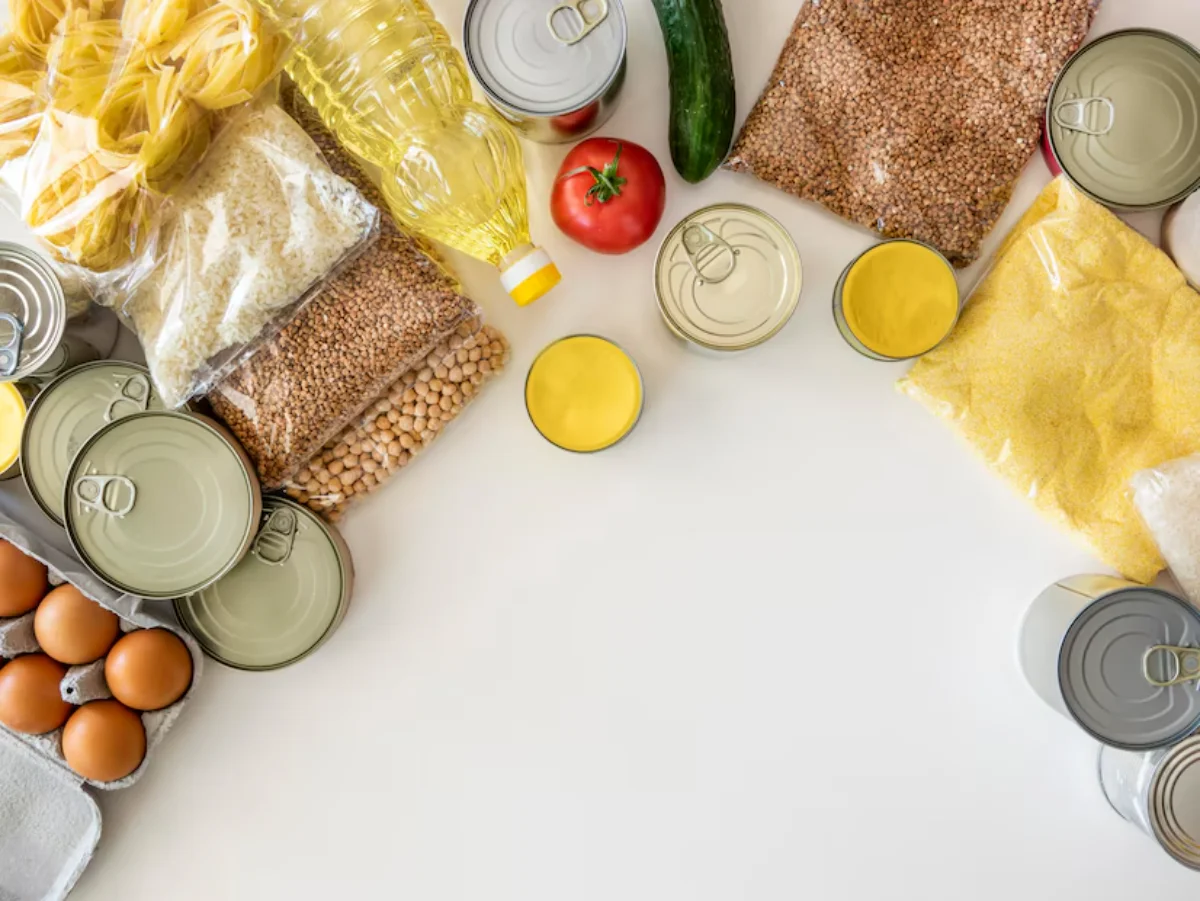
How to Plan a Week of Healthy Meals
It can feel challenging to plan a week of healthy meals, though it doesn’t have to be! With a small amount of planning, eating well and reducing stress during hectic weeknights is possible. “Healthy food choices are investments in your health.”
Balance also enables you to fill in your plate. Essentially, you only plan one meal, but it is balanced and saves time and stress.
— This guide is all about meal prep: Easy tips to meal prep for a healthy weekly meal plan: If you want to eat better, spend less or simplify mealtime.
The Importance of Healthy Meal Planning

Meal planning is about making smart choices that support your health. When you plan, you can create balanced meals and avoid unhealthy last-minute options.
Key Benefits of Meal Planning
- Ensures Nutritional Balance – Includes a variety of foods for essential nutrients.
- Saves Time and Reduces Stress – Knowing your meals beforehand reduces stress.
- Aids Portion Control and Weight Management – Helps manage portion sizes effectively.
- Saves Money—A clear plan leads to a focused shopping list, which reduces impulse buys and food waste.
- Encourages Healthier Eating Habits – Prepared meals reduce the chance of choosing fast food or unhealthy snacks.
Pro Tip:
Start small! Plan 3-4 weekly meals before moving to a full 7-day schedule.
Quick Guide for Effective Meal Planning
1. Assess Your Nutritional Needs
Know your dietary needs before planning. Age, gender, activity level, and health goals affect what you need to eat.
- If needed, consult a healthcare provider or dietitian for tailored advice.
- Consider dietary restrictions (e.g., vegetarian, gluten-free) to align your plan with your lifestyle.
2. Set Clear Goals
Define your main goal for meal planning:
- Weight Management – Focus on calories and nutrient-rich foods.
- Muscle Gain – Ensure enough protein for recovery and growth.
- Improved Health – Choose whole foods while limiting processed items and added sugars.
- Budget-Friendly Eating – Use affordable, nutritious ingredients.
3. Plan a Balanced Menu
Each meal should feature:
- Lean Proteins – Chicken, fish, tofu, legumes, eggs, and lean meats.
- Whole Grains – Brown rice, quinoa, whole wheat pasta, and oats.
- Fruits and Vegetables – A mix of colours for diverse nutrients.
- Healthy Fats – Avocado, nuts, seeds, olive oil, and fatty fish.
- Dairy or Dairy Alternatives – Greek yoghurt, milk, cheese, or fortified plant-based options.
Important Tip:
Use the plate method: Fill half your plate with vegetables, one-quarter with protein, and one-quarter with whole grains.
4. Create a Shopping List
After planning your menu, write a detailed shopping list to avoid making unnecessary purchases. To make shopping easier, Organise it by categories like produce, dairy, proteins, and pantry staples.
5. Schedule Time for Meal Prep
Pick a time (like Sunday afternoon) to prep your weekly meals. This helps you stick to your healthy eating goals and cuts down on fast food or unhealthy snacks.
Meal Prep Strategies
Effective meal prep is key to sticking to your healthy eating plan. Here are some strategies:
Batch Cooking
- Cook large amounts of staples like grains, proteins, and roasted vegetables.
- Store them in separate containers for easy mixing and matching.
- Example: Prepare a batch of quinoa, grill chicken, and roast vegetables—mix them up throughout the week.
Pre-Portioned Meals
- Prepare whole meals in individual grab-and-go containers.
- This helps with portion control and reduces decision fatigue.
- Example: Pack brown rice, steamed broccoli, and baked salmon in meal prep containers.
Ingredient Preparation
- Chop vegetables, marinate proteins, and portion snacks in advance.
- This speeds up cooking during the week.
- Example: Pre-wash and cut carrots, celery, and bell peppers for quick snacks or salad toppings.
Pro Tip:
Invest in quality meal prep containers to keep food fresh longer.
Best Meal Prep Ideas

Breakfast Options
- Overnight Oats – Mix oats with milk, refrigerate overnight, and top with fruit or nuts in the morning.
- Egg Muffins – Whisk eggs with veggies, bake in muffin tins, and store for a quick breakfast.
- Smoothie Packs – Portion fruits and greens in bags for easy blending.
Lunch Ideas
- Salad Jars – Layer salads in jars with dressing at the bottom. Shake when ready to eat.
- Grain Bowls – Combine cooked grains, vegetables, and proteins with a tasty dressing.
- Wraps & Sandwiches – Prepare fillings ahead and assemble fresh.
Dinner Suggestions
- One-Pan Meals – Bake proteins and veggies on one sheet for easy cleanup.
- Stir-Fries – Sauté vegetables and proteins in a tasty sauce; serve over brown rice.
- Casseroles – Assemble ahead and bake when needed; great for leftovers.
Secret Tip: If you’re short on time, prep your meals while cooking dinner! Chop extra veggies, cook extra protein, or prepare a lunch portion for your evening meal. This saves time and ensures you always have healthy options ready!
Frequently Asked Questions About Meal Planning
- How do I start meal planning if I’m a beginner?
- How long do meal prepped meals stay fresh?
- What if I get bored of eating the same meals?
- How can I plan my meals on a budget?
- Can meal planning help with weight loss?
Start small! Plan 3-4 weekly meals, then gradually increase as you build the habit.
Most prepared meals last 3-5 days in the fridge. Use the freezer for more extended storage.
Rotate different flavours and ingredients each week. Try new sauces, spices, and cooking methods.
Buy seasonal produce, shop in bulk, and use versatile ingredients across multiple meals.
Yes! Meal planning supports portion control and balanced meals and reduces impulse eating.
Plan Your Meals for a Healthier Lifestyle

Meal planning relieves daily pressure to decide what to eat. You can do it, too, by knowing your nutritional needs, goals, and meal prep.
Good food management can significantly impact your body; thus, a good meal plan can help manage weight and time and should lead to a healthy life. There’s no denying that meal planning is critical to success if you want to eat better, save money, or have a simplified routine.
Healthy food choices are an investment in your health.


